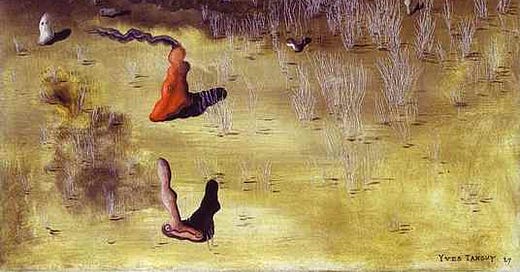“‘People mistakenly believe, he said, that a myth is an untruth. But myth is not that. A myth is that which is TRUER THAN TRUTH.’ It may not be that flying saucers represent visits from outer space. But if large enough numbers believe it, then in some sense it will become truer than true, long enough for certain things to change irreversibly.”
— Jacques Vallee, The Invisible College: What a Group of Scientists Has Discovered About UFO Influence on the Human Race
“The aim of philosophy, abstractly formulated, is to understand how things in the broadest possible sense of the term hang together in the broadest possible sense of the term. Under 'things in the broadest possible sense' I include such radically different items as not only 'cabbages and kings', but numbers and duties, possibilities and finger snaps, aesthetic experience and death. To achieve success in philosophy would be, to use a contemporary turn of phrase, to 'know one's way around' with respect to all these things, not in that unreflective way in which the centipede of the story knew its way around before it faced the question, 'how do I walk?', but in that reflective way which means that no intellectual holds are barred.”
— Wilfrid Sellars, “Philosophy and the Scientific Image of Man”
“Stepping between Umwelten, or at least trying to, is like setting foot on an alien planet.”
— Ed Yong, An Immense World
Jaque Vallee is a disciplined thinker. He is not given to extravagant speculation, and he seems throughout his vast corpus of published writings, lectures, and interviews to afford himself no more nor less in the way of conclusions than what is strictly implied by the premises of his arguments, and he doesn’t help himself to premises frivolously. I’m not aware of any place where he indulges unrestrained speculation.
It might be surprising to hold up Vallee as a living paradigm of epistemic discipline, as he is one of the deans of the field of UFOlogy (if not The Dean), an arena of research associated in the popular imagination with phantasmagoric speculation, cults, conspiracies, wishful thinking, manipulation by intelligence agencies, mental illness (“tin foil hats”), pop-culture grifting, Hollywood sensationalism, etc. In other words, though this has begun to change, the world of UFO studies is not typically thought of as a hotbed of laudable epistemic and evidentiary scruples. The fact, however, that a scientist with the highest academic credentials would suffer the consequences for his reputation by entering into such a fray (and publish accounts of his doing so) is part of my point: Vallee is one of the most “follow evidence” people you could ever find. If the data take us into a weird world of abductions, government psy-ops, and even elves and fairies (these are all topics he has considered rigorously at various points in his long career), then Vallee is willing to go there, even when doing so may lead to his being scorned or vilified by his elite peers. Encountering the rigor, honestly, and circumspection of Vallee’s work is part of what led me to start taking the Phenomenon seriously as an avenue for philosophical reflection.



